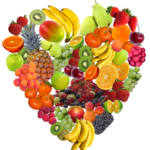
This article is for anyone who has felt bloated, overly-full or like a balloon after eating a meal! Stomach bloating can be really uncomfortable.
The good news is that nature has provided us with some fantastic remedies to deflate that bloated feeling and get you back to feeling light and breezy.
Let’s dive into the top 10 natural bloating remedies.
What Causes Stomach Bloating?
Before we unveil the remedies, let’s quickly peek at the usual suspects causing the belly bloat:
- Digestive Disruption: Sometimes our digestive system gets a little confused, leading to the production of excess gas. This can happen due to various reasons, like gulping down food too fast or eating foods that your tummy isn’t fond of.
- Swallowed Air: Even something as innocent as talking while eating or chugging fizzy drinks can introduce extra air into your system, causing gas and an overly full belly.
- Constipation: When things aren’t moving smoothly in the bathroom, it can lead to bloating. The remedies below can help to keep things flowing smoothly.
Now that we know our foes, let’s share the powerful natural remedies.
1. Peppermint Power
Peppermint isn’t just for freshening breath; it’s a bloating genius. Studies have shown that peppermint oil can relax the muscles of your digestive system, allowing gas to pass more easily. Plus, it leaves you with that refreshing minty feeling.
2. Ginger Zing
Ginger is not only a spicy addition to your stir-fries but also a bloating warrior. It helps relax the intestines and relieve irritation, reducing bloating and cramps.
3. Fennel Fun
Fennel seeds have been used for centuries to ease digestive issues. Chewing on a few seeds after a meal can help prevent gas and bloating. Plus, they taste like a licorice-flavored treat. A warm cup of fennel tea is another good option, as well as enjoying a steamed or boiled fennel bulb.
4. Chamomile Charm
A warm cup of chamomile tea not only relaxes your mind but also your digestive muscles. It can soothe an upset stomach and reduce bloating. Sip on this golden tea for some stomach-calming magic. This tea is also well-known for calming sleeplessness and insomnia.
5. Lemon Lift
Starting your day with a glass of warm lemon water can kick-start your digestive system and help flush out toxins. The citric acid in lemons also aids in digestion, reducing bloating and keeping you hydrated.
6. Papaya Power
Papaya contains enzymes like papain that break down proteins and aid digestion. Munching on some fresh papaya or taking papaya enzyme supplements can ease bloating and promote a smoother flow of food through the intestines.
7. Probiotic Remedy
Adding probiotics to your daily routine can work wonders for your gut health. These friendly bacteria help balance your gut flora, reducing bloating and improving digestion. Yogurt, kefir, or probiotic supplements are your belly’s best friends.
8. Water Wonder
Sometimes the simplest solution is the best. Drinking plenty of water throughout the day helps keep things diluted and moving in your digestive system, preventing constipation and bloating.
9. Dandelion Delight
Dandelion tea is a hidden gem for bloating relief. It acts as a diuretic, helping your body shed excess water weight and reduce bloating.
10. Yoga Poses
Strike a pose and say goodbye to bloating. Certain yoga poses, like the Wind-Relieving Pose, can help massage your digestive organs and release trapped gas. Plus, it’s a fun way to twist out those tummy troubles.
Research and Studies
Research has shown that many of these natural remedies have been effective in not only reducing bloating but also aiding in various digestive issues.
- Peppermint: Gastroenterology is the study of stomach and intestinal health. A study published in the Journal of Clinical Gastroenterology found that peppermint oil capsules reduced symptoms of bloating and gas in patients with irritable bowel syndrome.
- Ginger: The World Journal of Gastroenterology published a study showing that ginger was effective in relieving bloating and aiding digestion.
- Fennel: According to a study in Evidence-Based Complementary and Alternative Medicine, fennel was found to reduce intestinal spasms and increase movement of food through the intestines.
- Chamomile: Research in the European Journal of Gastroenterology suggests that chamomile can ease symptoms of indigestion and bloating.
- Probiotics: Multiple studies have highlighted the benefits of probiotics in reducing bloating and improving gut health. These also strengthen immunity and ward off many common diseases.
So there’s the top 10 natural ways to say goodbye to stomach bloating. Keep in mind that each body is unique, so feel free to experiment and find what works best for you.
Start with low doses and watch for both good and bad effects. Use the remedies that are tolerable for you and best support your good stomach health. You really can keep that bloating feeling at bay with a dash of nature’s magic.
This article is shared with you by Nutrition Breakthroughs, maker of the original calcium and magnesium based sleep aid Sleep Minerals II, and Joints and More, a natural supplement for joint relief, less aches and pains, stronger hair and nails, and more energy.



